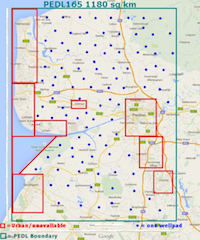Support for fracking goes into free fall
Today, the results of the latest YouGov poll on fracking were announced. Now we’ve never been keen on YouGov polls on any subject as they are not a truly random sample – instead participants sign up to a panel to earn points and rewards, which might explain at least partly why the results of this series of surveys have been different from the series run by DECC (now BEIS).
However, the results of the latest round of YouGov poll results must make absolutely dismal reading for Cuadrilla and any other companies that are seeking a social licence to extract shale gas.

YouGov polls on fracking
The Guardian tells us
The survey of 4,500 people took place just before the decision last week by communities secretary, Sajid Javid, to allow fracking in Lancashire by overturning the county council’s rejection of Cuadrilla’s fracking application. Rival company iGas is awaiting a decision next month on its bid to drill shale gas wells near Doncaster.
and
“The sharp downturn in support for the extraction and use of shale gas in the UK over the last 12 months is hugely significant, as is the fact that for the first time since we began running the survey in March 2012 more people are against shale gas extraction than in favour,” said Prof Sarah O’Hara at the university’s school of geography.
Imagine what the results might have looked like if they’d polled people after Mr Javid showed his contempt for locally taken decisions by giving Cuadrilla yet another chance to do their homework properly at Roseacre Wood!
The industry and its supporters will try to dismiss the result as a freak, but one look at the trends on the graph will show you that there is a clear and unmistakeable trend at work, just as there has been in the DECC/BEIS results.

We await the publication of BEIS Wave 18 results with some interest, but even those results are likely to be based on polls run prior to the overrule. It will be next year before we will see the impact of the government’s contempt for local democracy translated into numbers in these two polling series.































